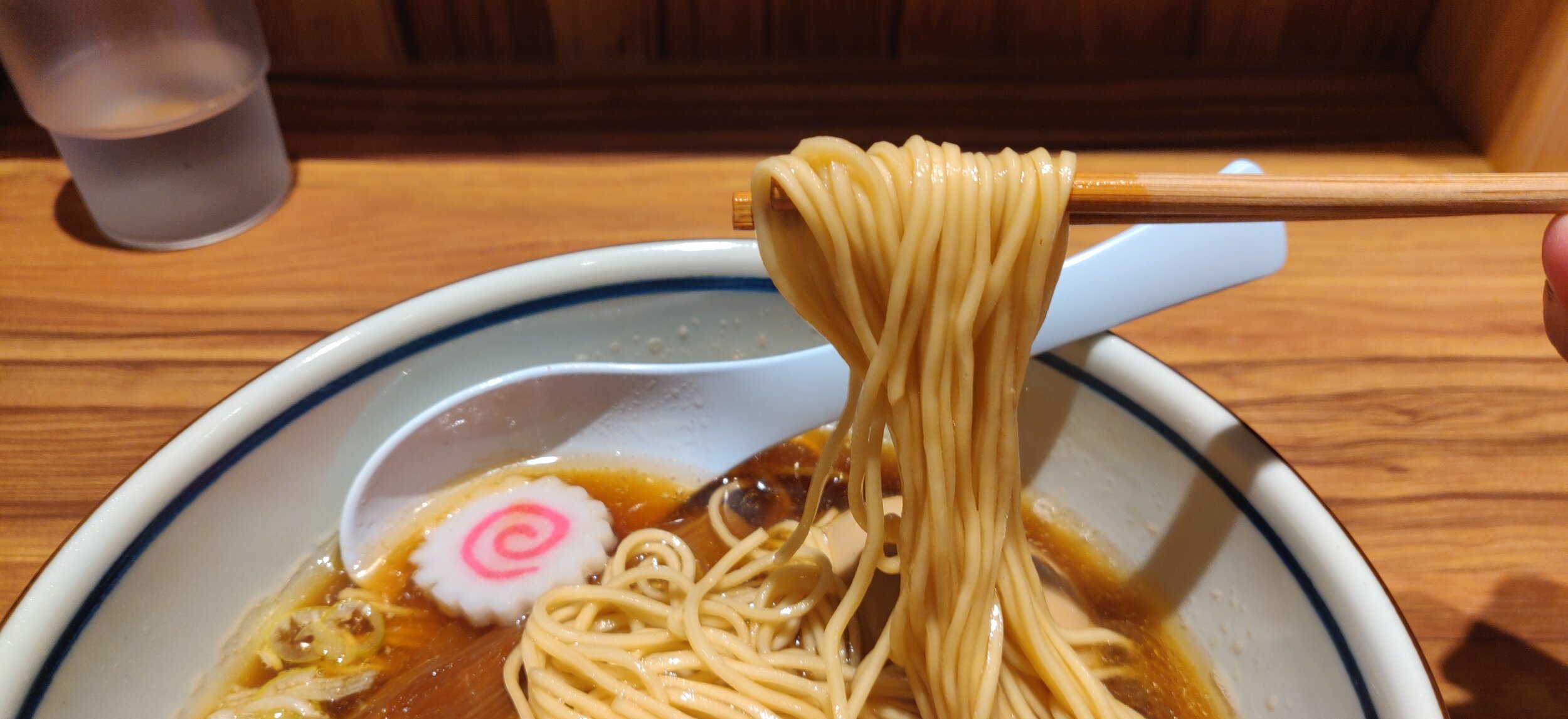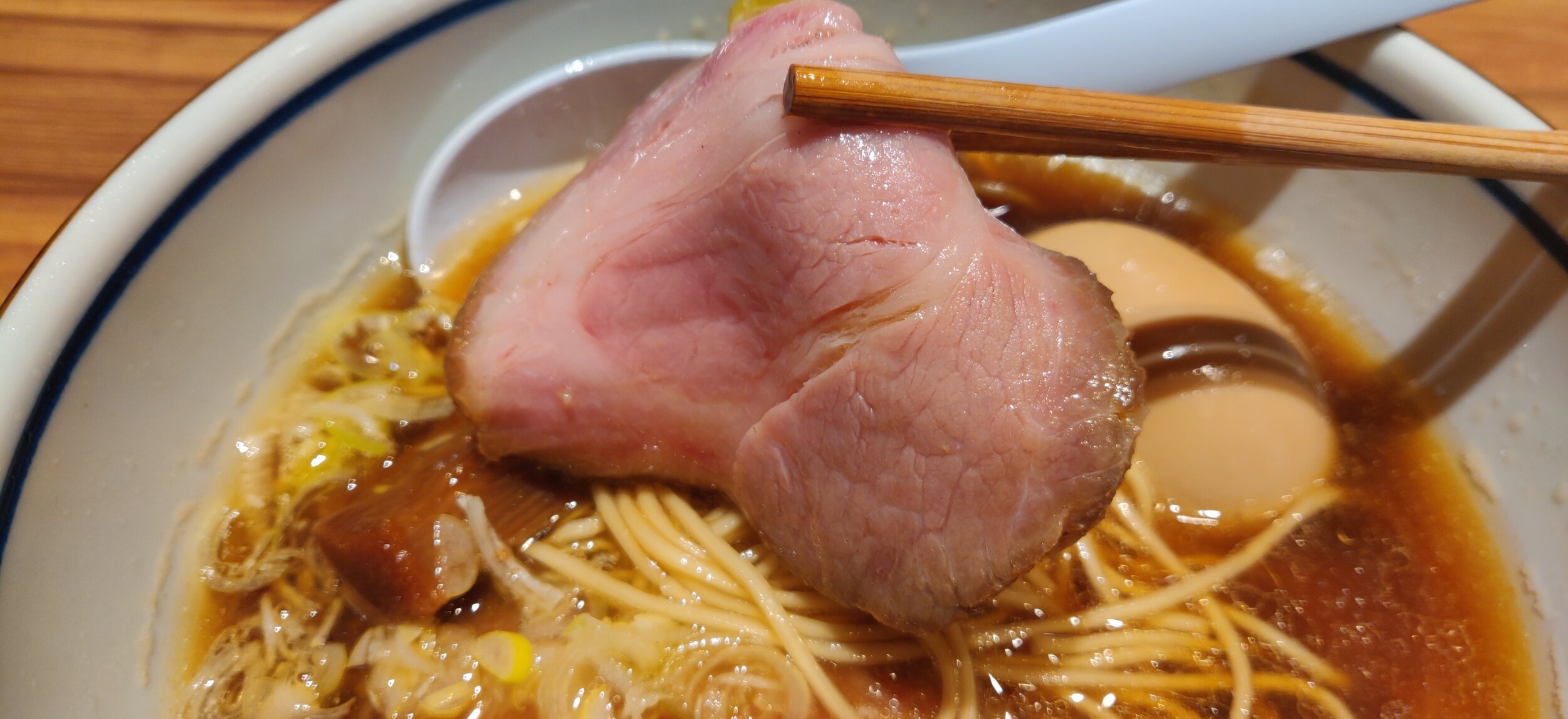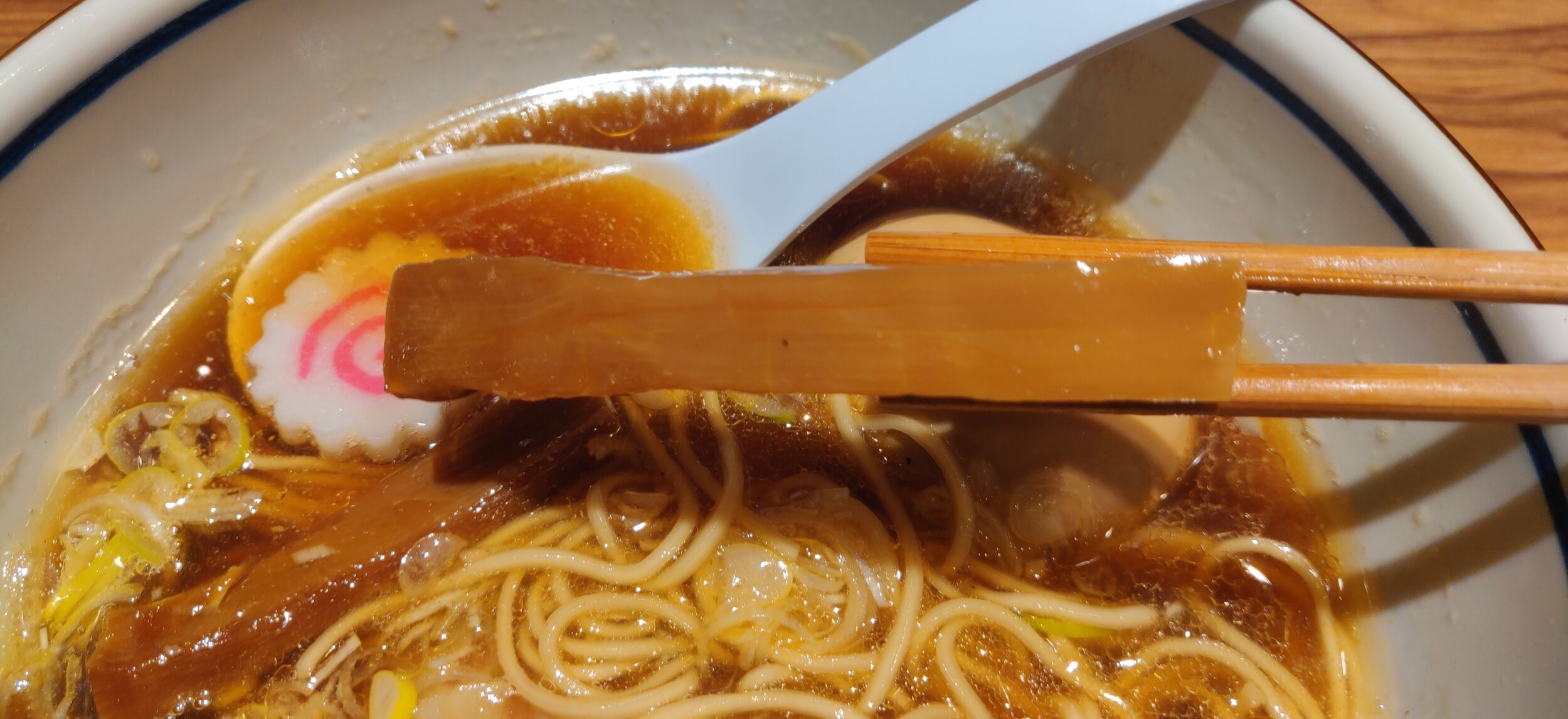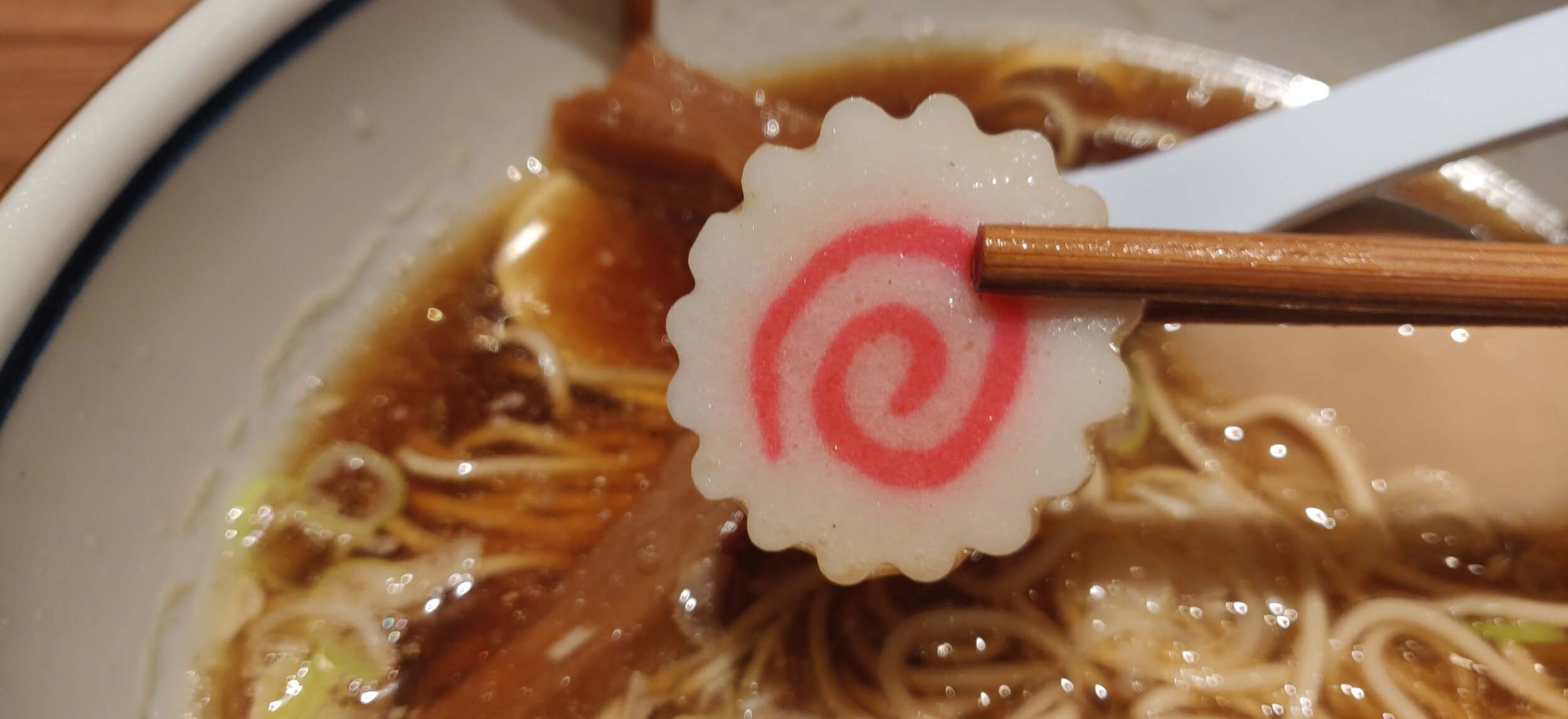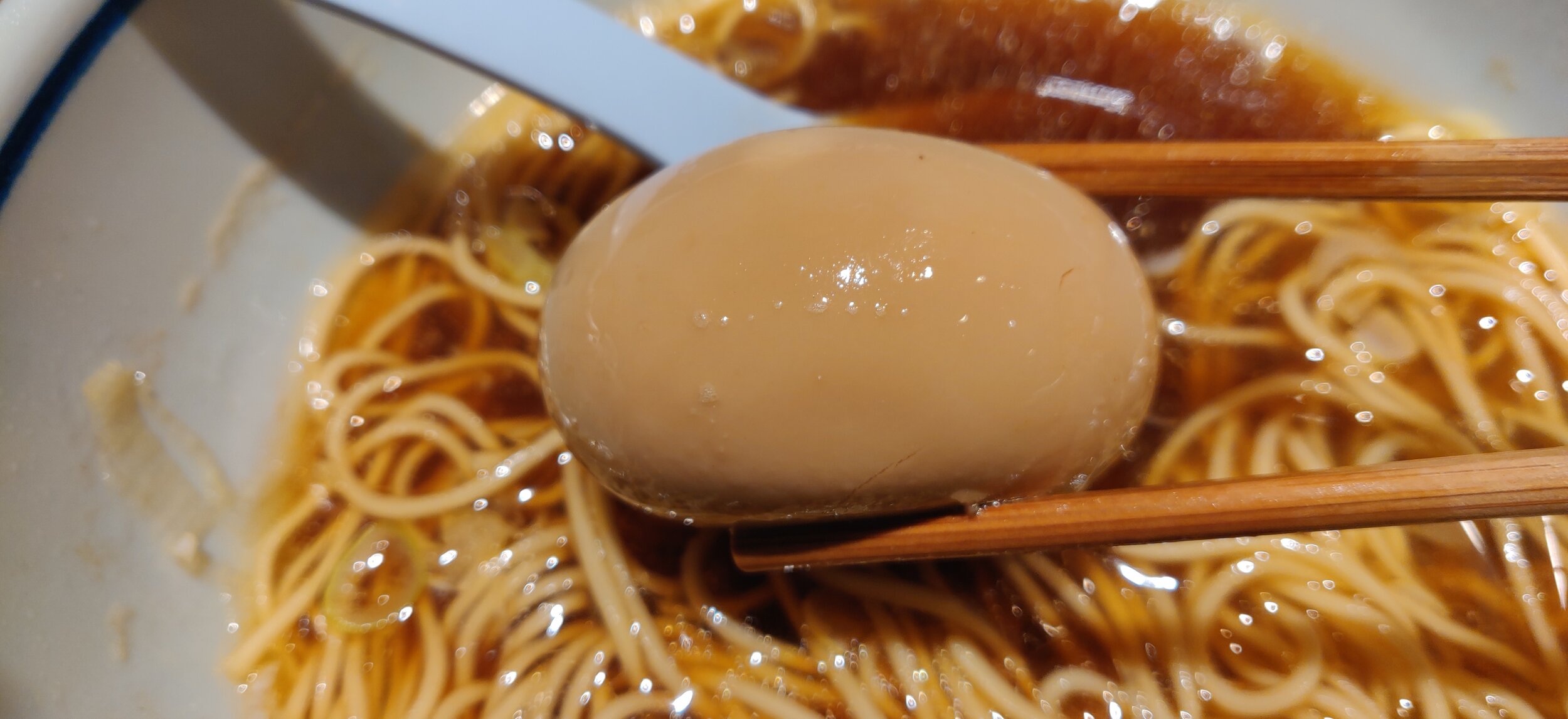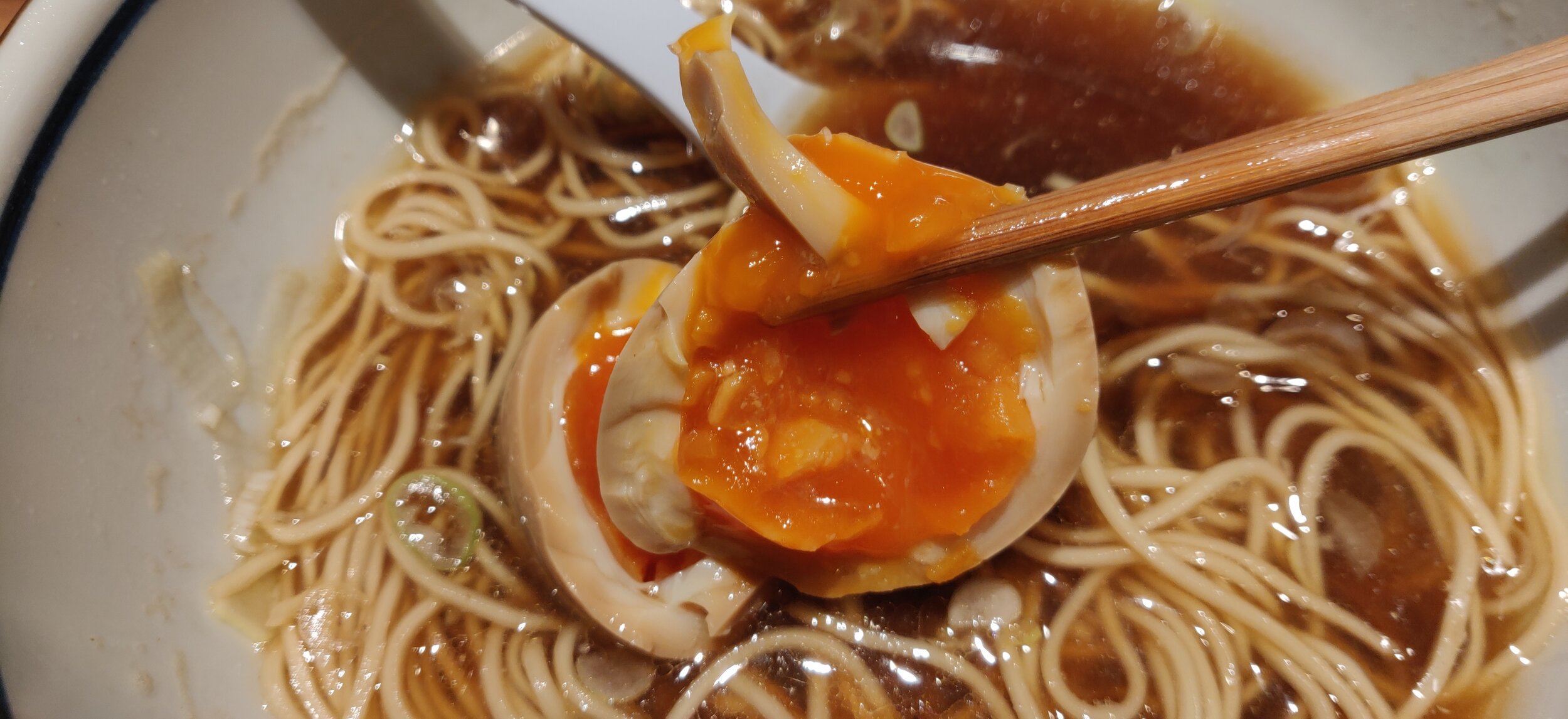Chuka Soba Horikawa (中華そば堀川); The Kansai Transplant; Jiyugaoka, Tokyo
Currently I’m based in the Kanto area of Japan so you’ll see that a lot of the shops I review center around places that is easily accessible for me by train. I don’t have a lot of time and flexibility in my schedule to make trips down south or up north very often so when I heard Chuka Soba Horikawa was moving their shop to Jiyugaoka, I was elated to say the least. Horikawa opened their Kansai location in 2016, and since their inception, have been known as one of the best Niboshi ramen shops in the area. I’ve been dying to check them out for the last couple years, but never had the time when I was down in Kansai so I excitedly made my way to their new Tokyo location to finally try one of their masterpieces. In the short time they’ve been in Tokyo, they’ve already garnered a Tabelog Top 100 label so it seemed like the hype was real. Horikawa is located about a 6-7 minute walk from the Tokyu Jiyugaoka station and draws heavy lines regardless of the day so plan accordingly. Shop is open Thursdays-Tuesdays from 11:00-15:45 with last order at 15:30. Shop is closed on Wednesdays and will sometimes close via announcement on their social media. The restaurant seats only 6 customers at a time so be prepared for long waits even if the queue seem short. Also, they go strictly on an open seat basis so if you’re going in groups, you’re unlikely to sit together unless seats open up next to each other at the same time. I learned from seeing a couple in front of me hoping to sit together that they do not budge on this rule and will have you sit as soon as a seat becomes available, regardless of how many are in your group. Photos limited to only your bowl of ramen and keep you talking to a minimum as they prefer a quiet shop.
As you may have already guessed, no ticket machine is written only in Japanese so I will do my best to translate it here. Only two ramen varieties served here, a Shoyu Ramen and an Irico Soba. Second row is the gentei, specialty items which will be announced via their social media if available. Third row are the toppings which start with a Zembu Nose, or extra of all the toppings, Ajitsuke tamago or marinated soft boiled egg, Chashu Mashi or extra pork chashu, and Menma Mashi or extra bamboo shoots. Fourth row are the rice options going down in size from large, to medium, to small and finally a bowl of Tamago-kake Gohan which is raw egg over rice. Next row down is for oomori, large rice and a button for a receipt at the very bottom. My order for the day was the Shoyu Ramen with a side of Ajitsuke soft boiled egg so I will have to come back and edit my review for when I try the Irico Soba.
Pictured is the Shoyu Ramen with a soft boiled egg topping and I can say this definitely lived up to it’s high expectations. My bowl came adorned with a slice of shoulder and belly pork chashu, a couple thick cut menma bamboo shoots, a small spoonful of negi, a naruto fishcake, and my Ajitsuke egg topping. Noodles were beautifully folded within the speckled, auburn soup floating the toppings above it.
The soup is the highlight of the bowl and this amber colored liquid gold is worth the price of admission on its own and words seriously can’t express how delicious this was. Stock is made with three different chicken breeds including the famous Daisen and Tsukuba breeds as well as a variety of Niboshi dried fish. The tare seasoning is shoyu and the aroma oil uses both Chiyu chicken oil as well as a separate niboshi infused oil. The combination of the stock, tare, and aroma oils make for an unbelievably balanced soup that brings together a nice hit of savory, sweet, and umami in one spoonful. Chicken soup base gives the soup nice body and depth of flavors which is supplemented and uplifted with the umami goodness of the Niboshi dried fish. Shoyu gives it the nice savory hit and helps to bind all the flavors together as one. As you can see from the photo above, the shimmer and glean of the aroma oil floats on the surface of the soup and is the first to hit your lips when you get a mouthful of this delicious goodness. The fatty, oiliness immediately coats your mouth before exploding with the broth underneath.
Noodles are made in house and pair perfectly with the soup. The noodles are a bit chewy, but have a nice snap to them at the end. I particularly enjoyed how easy each strand was to slurp and the way the soup clung to each individual strand. The aromas of the wheat flour permeated from my mouth through my nose when I bit in to them, but not enough to overpower the gentle, delicate flavors of the soup. Pork chashu slices are sous vide and not overly seasoned, rather it takes on the flavor profile of the soup. Don’t let it soak for too long however as the residual heat of the pipping hot soup will overcook the slices if left to the end. Menma bamboo shoot is the thick cut variety and I liked the textural contrast it provided against the snappy noodles and tender chashu. Naruto fishcake is a nice touch at the end as well as the thin cut negi that provides a refreshing after note to the bowl. I opted to get a side topping order of the Ajitsuke tamago, or soft boiled egg and I was glad I did. Not only was it cooked to a runny, yolky finish, the egg was perfectly marinated in the shoyu tare. I think I tasted hints of sake which gave a soothing flavor to the egg.
Almost all of the ingredients used at Horikawa is produced in Japan and the master tries to use as many local ingredients as possible. While ramen isn’t the most sustainable cuisine, it is nice to see a shop try and stay as local as possible. The resulting ramen is filled with a lot of love and soul which is evident as soon as you receive one of their bowls. While the lines do get lengthy, I definitely recommend a visit to Horikawa to try their famous ramen. Jiyugaoka, the area in which the shop is located, is a ritzy residential area of Tokyo, but they have a lot of hidden gem, local shops and cafes that is nice to visit after your bowl. If you’re new to this blog, and you’re here looking for ramen shop recommendations, please consider purchasing my Top 15 ramen guide eBook! I detail 15 of the best shops to visit on your trip to Tokyo with tips and tricks for visiting Japan. All proceeds go towards funding my self published ramen coffee table book so I appreciate the support in advance!




